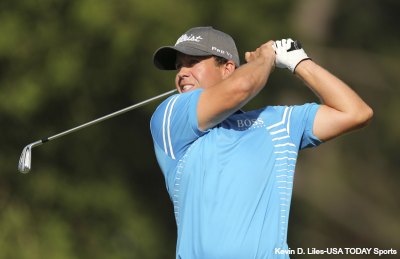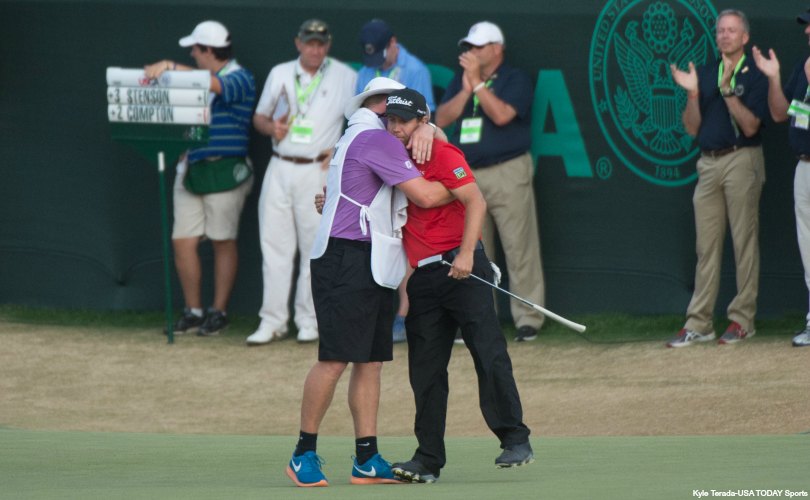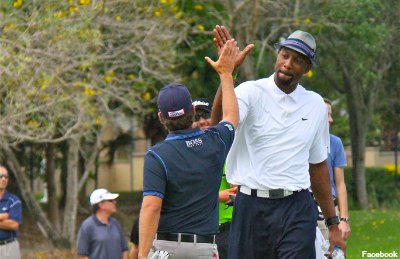At any given moment, there are 124,000 people in America waiting for an organ donation that could save their life. Erik Compton has been one of those people -- twice, actually.
Two heart transplants later, the golfer has resumed his PGA Tour career, even enjoying a brief burst of success. And with April designated as National Donate Life Month, Compton is doing his part to get the word out on the difference organ donations can make.
"Not everybody gets a transplant in time," Compton says. "But on the flipside, accidents happen. I'm a result of someone who was in a hit-and-run accident. I know the donor's family.
"I've been having health issues most of my life, and someone who is healthy most of their life is struck by a car and their life is ended."

That, Compton says, is the paradox of organ donation. People don't expect to die in accidents -- they don't plan on being hit by a car, or falling and hitting their head. And by the time those accidents do occur, those individuals are too late to register as organ donors. Instead, an opportunity to save other people's lives is lost in the wake of that tragedy.
Compton knows this firsthand. His first time getting on the list for an organ donation, he estimates he waited "two-and-a-half to three years." The second time around, it was six to eight months. He says the way organ donations are prioritized is complex, involving a number of factors, including age and health. Organs typically go to individuals who are sick and urgently need a transplant -- but not too sick that they can't withstand the operation.
Organ transplants, as one might expect, is incredibly stressful on the body. So much so that Compton, before his second transplant, entered the procedure prepared to lose his golf career. His first transplant came in 1992, when he was 12. He went on to play golf at University of Georgia and turned pro in 2001.
But his heart condition -- viral cardiomyopathy, in which heart muscle inflammation prevents the organ from functioning as it should -- returned as an adult, and in 2008

he had to undergo a second transplant. Notions of starting a family, much less continuing his pro career, seemed like distant dreams.
During his rehab, though, Compton felt inspired to return to the sport.
"When I got out of the surgery and put one foot in front of the other," he says. "I got married, my wife and I found out she was pregnant, and then we decided, 'Well, I'm going to make a comeback.'"
Compton made it back on the professional tour. In 2011, he even won the Mexico Open on the Nationwide Tour. But his greatest achievement came in 2014, when he came out of nowhere to tie for second at the U.S. Open. In that tournament, Martin Kaymer breezed his way to an eight-stroke victory. But Compton matched Rickie Fowler stroke for stroke and became the heartwarming story of that tournament.
It was a sentimental tie for both Compton and Fowler. Fowler had previously played with Compton in his foundation's golf events, alongside celebrity organ-donor advocates like Alonzo Mourning and George Lopez.
Even as he continues his golf career -- he played in the Shell Houston Open earlier this month but failed to qualify for The Masters -- Compton continues to hustle on behalf of Donate Life, a national organization working to increase organ donations everywhere.

According to Donate Life, 90 percent of Americans say they support organ donation. But only 30 percent know the steps needed to become an organ donor. Meanwhile, an average of 22 people die every day because they haven't received an organ donation in time.
"People want to be able to talk about it, and this campaign I've been on with Donate Life has been great to [share the message] of how important organ donation is and how successful it is," Compton says,
Compton believes people simply aren't as aware of the issue until it hits close to home -- "until they've lost a loved one or needed a transplant themselves." So his strategy is simple: Raise awareness, have conversations and teach people the importance of choosing organ donation before it's too late.
"I would think that, for people who have never heard of it, it's hard for them to make a decision," Compton says. "So we just try to get the news out. We think that it's something that should be talked about with every person."
For more information about organ donation, visit DonateLife.net.





